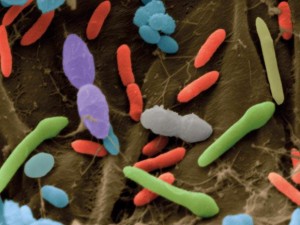A study from the American Journal of Clinical Nutrition showed that both white meat and red meat elevate cholesterol. This was a randomized controlled clinical trial. Many observational studies in the past showed that red meat consumption could elevated LDL cholesterol values and this increased cardiovascular disease. Many study authors have recommended to get away from the dangers from red meat by switching to white meat from poultry .
However, this study pursued this question in more detail. It questions whether it is true that white meat is safer from a cardiovascular risk point of view. It also studies the effects on cardiovascular risk when switching to vegetable protein (vegan or vegetarian diets). In addition, the researchers assessed the effects of low or high saturated fat on LDL cholesterol levels.
Design of the study
Researchers from the Children’s Hospital Oakland Research Institute, Oakland, CA conducted the study. They rotated participants through three different diets for 4 weeks each with a washout period of 2 to 7 weeks in between where they ate their usual foods. The diets were as follows. The first tract consisted of food with high-saturated fatty acids (high SFA): red meat; white meat and non-meat. The second tract contained low-saturated fatty acids (low SFA): red meat, white meat and non-meat. The researchers determined the cardiovascular risk of these 6 diets by measuring triglyceride levels, LDL cholesterol levels apo B levels ad additional factors.
Results of the study
LDL cholesterol: 2.64 mmol/L for red meat, high SFA; 2.61 for white meat, high SFA; 2.46 for non-meat, high SFA.
The LDL cholesterol values for red meat, low SFA were 2.35; for white meat, low SFA were 2.38 and for non-meat, low SFA were 2.22.
The message from this part of the trial is that it did not matter whether you ate red meat or white meat, the LDL cholesterol was still high, particularly when combined with high saturated fatty acids. Lean cuts of red meat and of chicken (no skin) result in lower LDL cholesterol readings. The very best LDL cholesterol results came from non-meat protein like vegetables. This was particularly so when the vegetables contained only low-saturated fatty acids.
There were many more results in the study, but it would be inappropriate to list them all for this overview here. For those interested in it, here is the link where more detail is discussed. Here is a blog where I discussed how to lower cholesterol.
Discussion of the study that found that both white meat and red meat elevate cholesterol
For years physicians have recommended to exchange some of the red meat (beef, pork and lamb) with white chicken or white turkey meat. This was based on poorly designed observational studies. Now the investigators of a randomized controlled clinical trial have shown that the old assumptions were incorrect. White meat raises LDL cholesterol just as much as red meat does. But protein from vegan or vegetarian diets lowers LDL cholesterol significantly. In addition the effect of saturated fatty acids raises LDL cholesterol significantly in all of the different diets. The researchers pointed out that L-Carnitine from red meat is metabolized by gut bacteria into trimethylamine-N-oxide (TMAO). This is a substance that has two effects on the body: it causes increased atherosclerosis (hardening of arteries) and also causes cancer of the colon.
Conclusion
This randomized clinical trial clearly showed that red meat and white meat cause the same elevation of LDL cholesterol and other cardiovascular risk factors. In contrast non-meat protein from a vegetarian or vegan diet lowers cholesterol. Also, high-saturated fatty acid food elevated cholesterol while low-saturated fatty acid food lowers cholesterol. For this reason, choose the leanest cut, if you eat red or white meat. Don’t be afraid to have a meatless day once or more often during the week. It will help you to equilibrate your cholesterol level. Keep in mind that your gut bacteria metabolize red meat into trimethylamine-N-oxide (TMAO). This is a substance that has two effects on the body: it causes increased atherosclerosis (hardening of arteries) and also causes cancer of the colon. For this reason keep your red meat consumption low, which prevents colon cancer, heart attacks and strokes.







